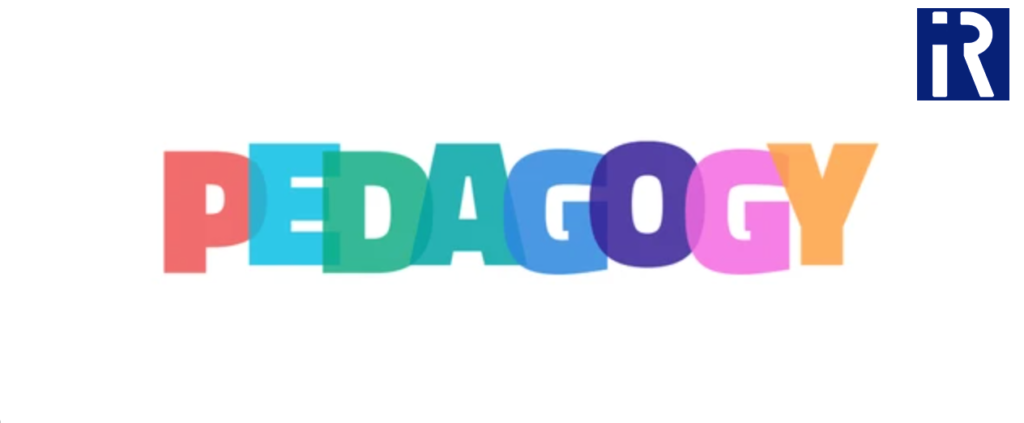The method and practice of teaching, especially as an academic subject or theoretical concept. Pedagogy refers to the way of teaching students, whether it is the theory or practice of educating. It is often described as the act of teaching. It is a relationship between the culture and techniques of learning.
The main aim of pedagogy is to build on the previous learning of the students and work on the development of skills and attitudes of the learners. It enables the students to get a thorough understanding of the subject and helps them in applying those learnings in their daily lives outside of the classroom.
[responsivevoice buttonposition=”after” buttontext=”How to pronounce”] Pedagogy [/responsivevoice]

What Is Pedagogy In Teaching?
Pedagogy in teaching means teacher understanding of how the students learn. The teachers are focused on presenting the syllabus to the students in such a way that it is relevant to their needs. Teachers can use interactive methods like objects, screens, 3D visualized contents, etc so that students can learn easily and understand quickly. It demands the interactions in the classroom between the teacher and students which create a significant impact on the students’ minds.
What Is Teacher Pedagogy?
It is centered towards the teacher, who gives the most meaningful course information. In this approach, the teacher has a large responsibility of giving correct information to the students in the right way (use any source or medium), irrespective of their teaching styles. The teacher can give a clear understanding of how the students are doing, concerning their learning and also focus on the effective model for the major understandable language.
What Are The Pedagogy Approaches?
Critical pedagogy
Critical pedagogical is the method of listening to and including students’ knowledge and perspectives in class. It makes connections between school and the broader community and poses problems to students that encourage them to question assumed knowledge and understandings.
The goal of problem posing to students is to enable them to begin to pose their own problems. Teachers acknowledge their position of authority and exhibit this authority through their actions that support students.
Dialogic learning
Dialogic learning is learning that takes place through dialogue. It is typically the result of egalitarian dialogue; in other words, the consequence of a dialogue in which different people provide arguments based on validity claims and not on power claims.
Student-centered learning
Student-centered learning, also known as learner-centered education, broadly encompasses methods of teaching that shift the focus of instruction from the teacher to the student. In original usage, student-centered learning aims to develop learner autonomy and independence by putting responsibility for the learning path in the hands of students. Student-centered instruction focuses on skills and practices that enable lifelong learning and independent problem-solving.
Importance Of Pedagogy In Teaching
Improves Quality Of Teaching
If a well-thought pedagogy is implemented in the classrooms, the quality of education can show a drastic improvement. This will benefit the students by helping them thoroughly understand the education material, thereby improving the learning outcomes.
Encourage Cooperative Learning Environment
The implementation of pedagogy in education encourages the students to work together towards completing a task and learn together. This increases their perceptions by understanding and taking views from the other students. Thereby adopting cooperative learning environments making them better leaders in the future.
Student Can Follow Their Ways Of Learning
A well thought pedagogy can help the students to grasp education in various ways. It caters to the learning abilities of different students. Students can follow their preferred ways of learning and stick to them. In this way, the students develop a better understanding of the subject, which eventually improves their skills and learning outcomes.
Eliminates Monotonous Learning
Pedagogy and child development work hand in hand. It helps the student to think in different ways and move beyond the traditional methods of memorization for learning. It invokes complex processes of learning among the students such as analyzing, creative thinking, and evaluation. Further, it makes students more receptive to what the teacher is teaching.
Convenient Learning Approach For All
Students with special needs require different ways of learning and teaching in the institutes. Implementation of a suitable pedagogical approach will help them learn better. It also encourages them to be a part of the mainstream learning community.
Improves Teacher-Student Communication
The teacher understands the student in a better way. It helps them to focus on the student’s weaknesses and guide them.
Note: Ireava helps your school to teach better with the adaption of the pedagogy method. Our ERP covers all the learning, teaching, and management modules with the deeply researched development technique. Contact us for better support and understanding.
visit: ireava.com